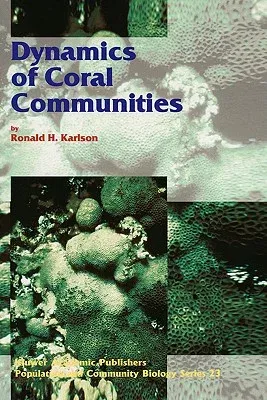R H Karlson
(Author)Dynamics of Coral Communities (1999)Hardcover - 1999, 31 August 1999

Qty
1
Turbo
Ships in 2 - 3 days
In Stock
Free Delivery
Cash on Delivery
15 Days
Free Returns
Secure Checkout

Part of Series
Population and Community Biology
Part of Series
Conservation Biology Series
Part of Series
Population and Community Biology (Kluwer Academic)
Part of Series
Population and Community Biology Series
Print Length
250 pages
Language
English
Publisher
Springer
Date Published
31 Aug 1999
ISBN-10
0412795507
ISBN-13
9780412795503
Description
Product Details
Author:
Book Edition:
1999
Book Format:
Hardcover
Country of Origin:
US
Date Published:
31 August 1999
Dimensions:
25.3 x
15.95 x
1.96 cm
Genre:
Ecology
ISBN-10:
0412795507
ISBN-13:
9780412795503
Language:
English
Location:
Dordrecht
Pages:
250
Publisher:
Series:
Weight:
544.31 gm